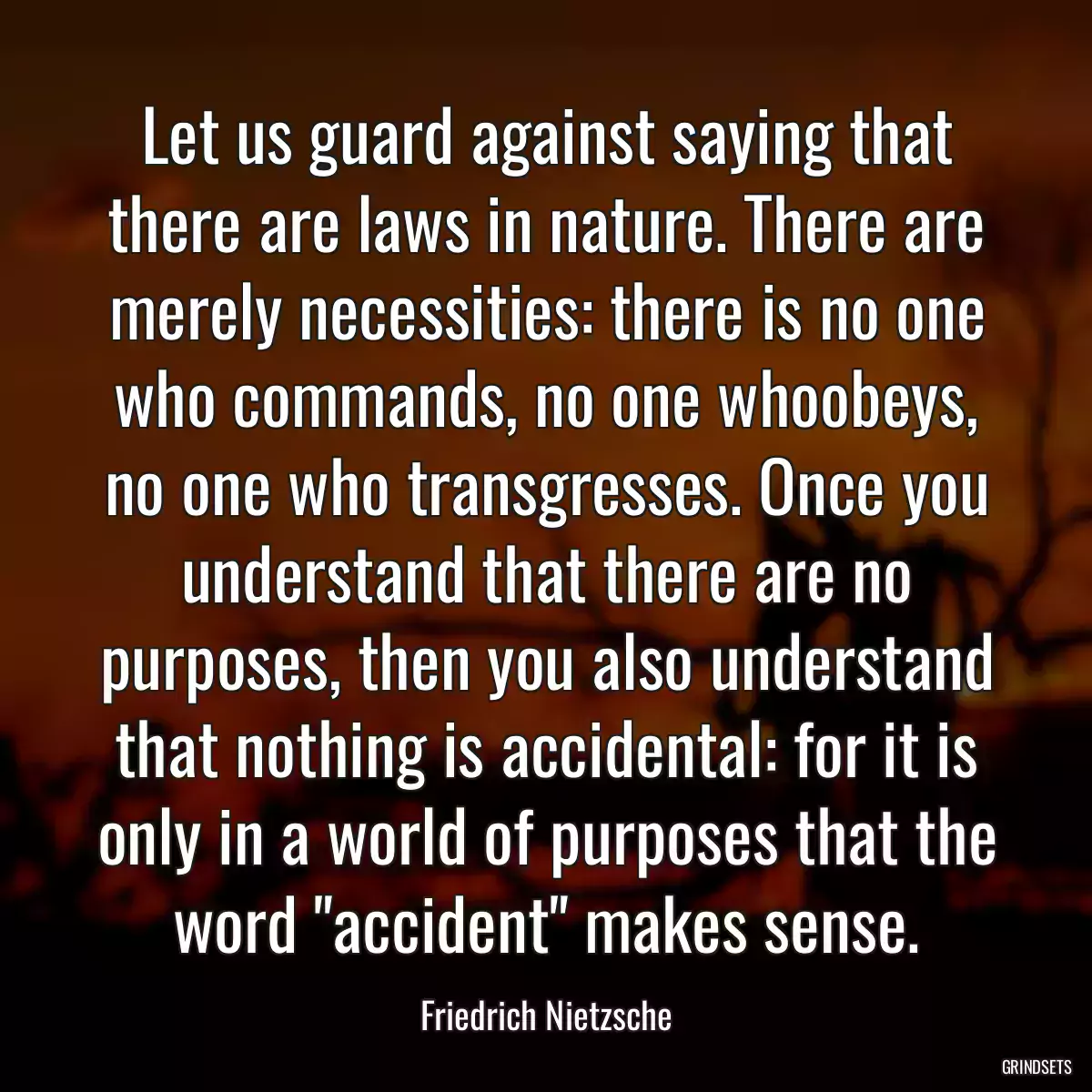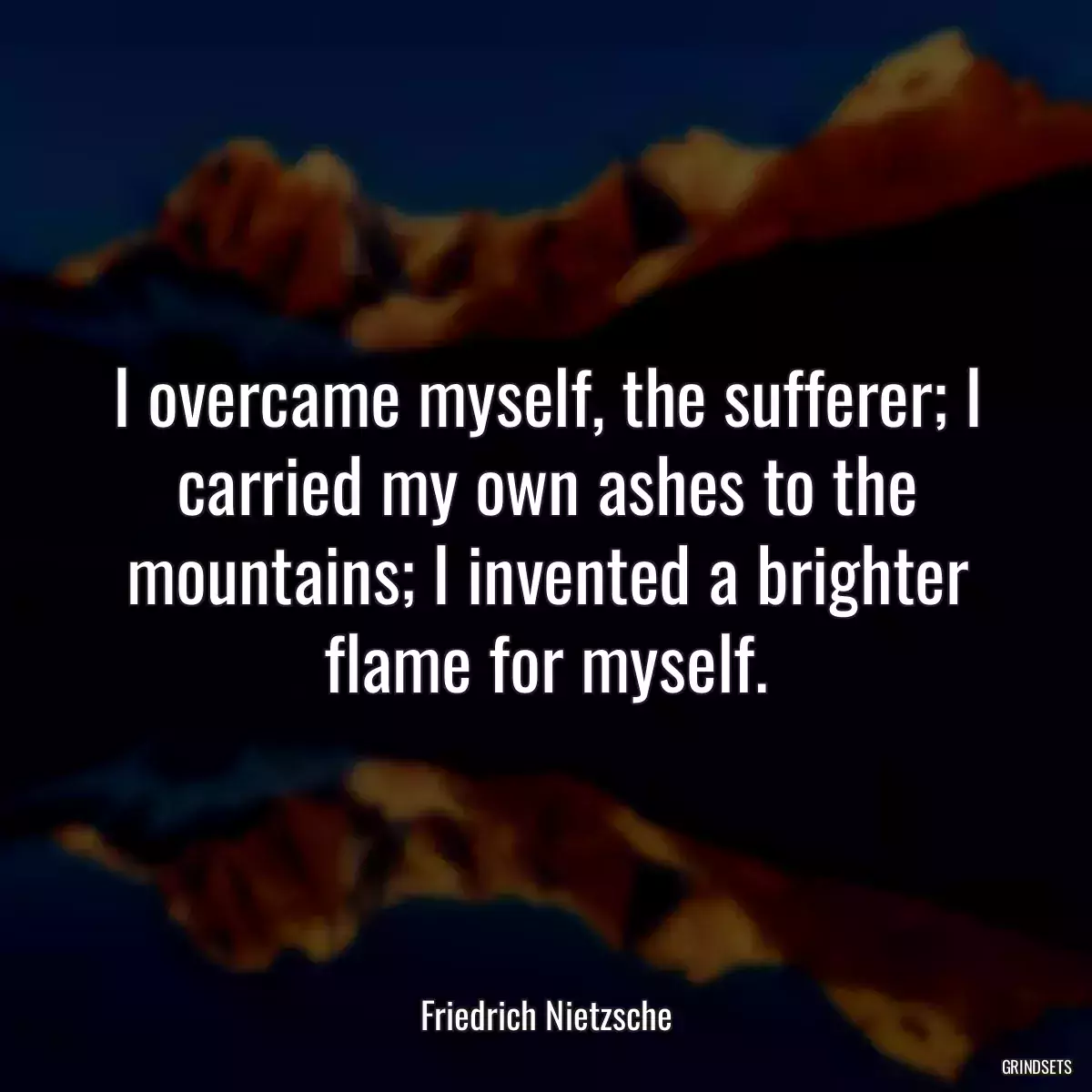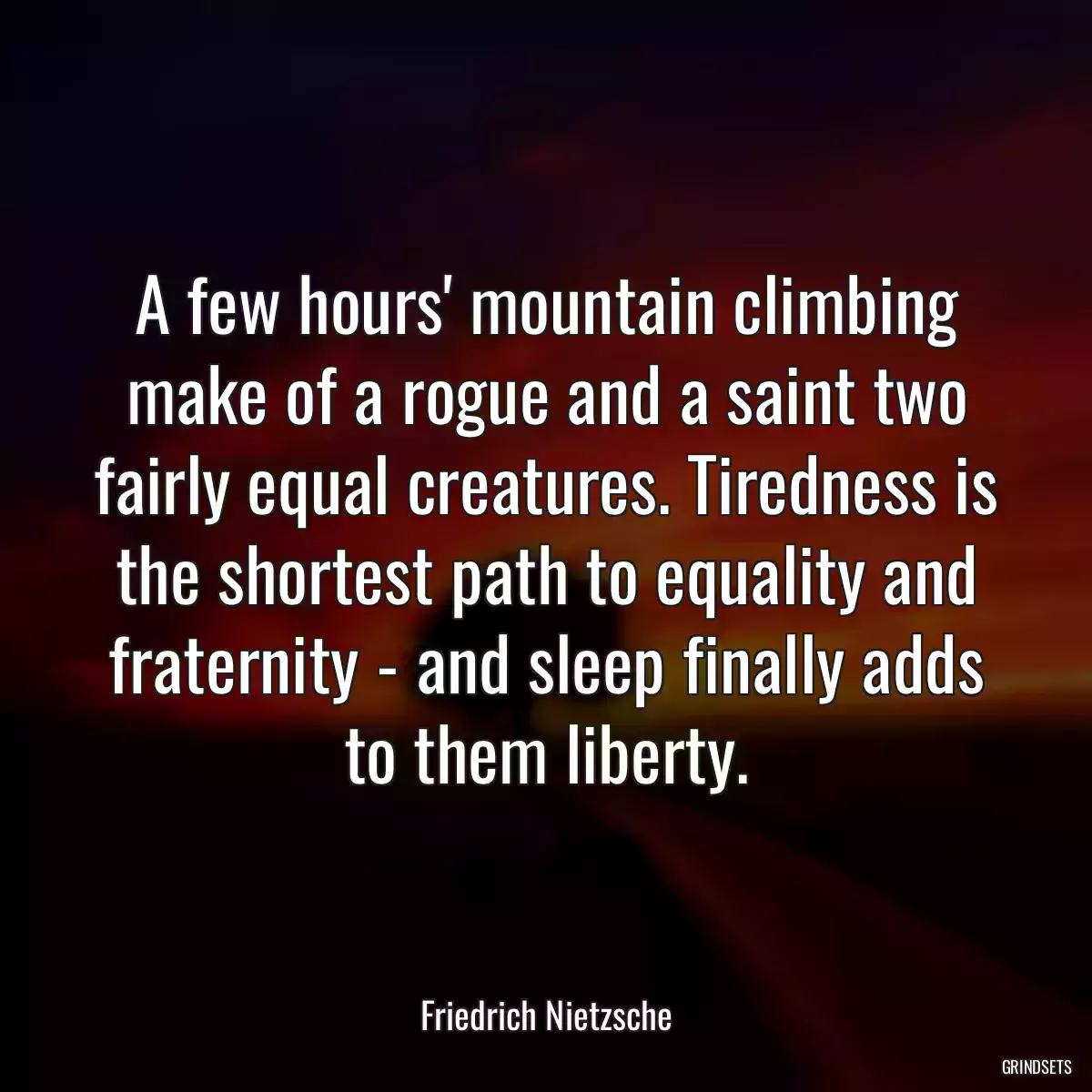
Let us guard against saying that there are laws in nature. There are merely necessities: there is no one who commands, no one whoobeys, no one who transgresses. Once you understand that there are no purposes, then you also understand that nothing is accidental: for it is only in a world of purposes that the word "accident" makes sense.

